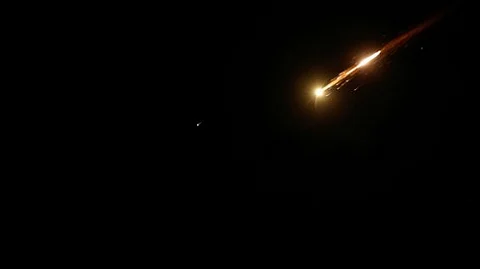

The conflict between Iran and Israel has entered its seventh day, with both nations continuing to exchange heavy fire in what is now one of the most intense confrontations in their long-standing hostility. The Israeli military has issued a warning for civilians to evacuate areas surrounding Iran’s Arak heavy water reactor, indicating a possible escalation of attacks on nuclear facilities.
Multiple Iranian drones were intercepted by Israeli defense forces overnight, as both countries remain locked in tit-for-tat military strikes. The regional situation has prompted serious international concern, with senior U.S. officials reportedly preparing for a possible military strike on Iran in the coming days, according to a Bloomberg report.
Former U.S. President Donald Trump added to the uncertainty, stating on Wednesday that he has not yet decided whether to involve the United States in support of Israel. “I may do it, I may not do it... I mean, nobody knows what I’m going to do,” Trump told reporters, adding that he prefers to make critical decisions “one second before it’s due.”
Amidst rising tensions, efforts toward diplomacy are also surfacing. European diplomats are scheduled to hold nuclear talks with Iranian officials this Friday, according to the Associated Press. However, the United States is not expected to participate in these discussions at this stage.
In a notable development, Russian President Vladimir Putin has stepped forward with an offer to mediate between Iran and Israel. His proposal reportedly includes provisions allowing Iran to continue its civilian atomic program while addressing Israel’s security concerns. Russia has shared this framework with the governments of Iran, Israel, and the United States.
Meanwhile, Iran maintains that it does not seek nuclear weapons—a claim central to the current hostilities. Iranian Foreign Minister Abbas Araghchi emphasized that Tehran remains “committed to diplomacy” and reiterated that nuclear weapons are not part of the country’s defense policy.
With international stakeholders now actively engaged, the world watches closely as diplomatic, military, and humanitarian outcomes hang in the balance.
(This story is published from a syndicated feed)